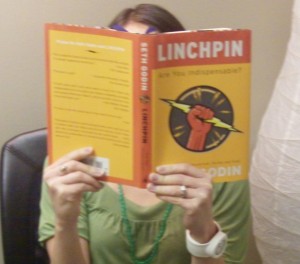 I recently found an article discussing the popularity of safety apparel for everyday consumers, not just those in the construction or manufacturing industries. Promo work wear and apparel are actually becoming a trend through out retail sectors. Primarily motorcyclists, bikers and outdoor enthusiasts are snatching the safety apparel up because it is not only functional and provides protection, but it is also becoming more fashionable. If this trend continues there is no telling what we will see in the promo work wear market in the years to come. With more and more individuals taking their health and safety more seriously, this is definitely a trend that could turn into the norm. Ladies and gentleman, promo work wear for everday safety is important. Be sure to browse the best vests for men and best vests for women and find the best vest for you.
I recently found an article discussing the popularity of safety apparel for everyday consumers, not just those in the construction or manufacturing industries. Promo work wear and apparel are actually becoming a trend through out retail sectors. Primarily motorcyclists, bikers and outdoor enthusiasts are snatching the safety apparel up because it is not only functional and provides protection, but it is also becoming more fashionable. If this trend continues there is no telling what we will see in the promo work wear market in the years to come. With more and more individuals taking their health and safety more seriously, this is definitely a trend that could turn into the norm. Ladies and gentleman, promo work wear for everday safety is important. Be sure to browse the best vests for men and best vests for women and find the best vest for you.
Uncategorized
Promotional products for roadside emergencies
 My parents have always been very thrifty and when something is broken or doesn’t work, we do it ourselves. This motto has worked for the most part, but it isn’t always convenient and definitely not so when pertaining to vehicles. I have some family relatives borrowing said “unreliable” vehicle and it overheated last night. So there they sit at midnight on the side of the road and my brother and I had to find them. Their emergency flashers were on, but an emergency flashlight such as the Garrity L.E.D. Rechargeable Emergency Auto Lite could have worked perfectly so they could assess the situation and as a signaling device. There are plenty of promotional product emergency kits that could work in similar situations. Luckily we got everyone home safe, to be continued on the car.
My parents have always been very thrifty and when something is broken or doesn’t work, we do it ourselves. This motto has worked for the most part, but it isn’t always convenient and definitely not so when pertaining to vehicles. I have some family relatives borrowing said “unreliable” vehicle and it overheated last night. So there they sit at midnight on the side of the road and my brother and I had to find them. Their emergency flashers were on, but an emergency flashlight such as the Garrity L.E.D. Rechargeable Emergency Auto Lite could have worked perfectly so they could assess the situation and as a signaling device. There are plenty of promotional product emergency kits that could work in similar situations. Luckily we got everyone home safe, to be continued on the car.
Congrats to contest winner Jill Henrichs!
Congratulations to Jill Henrichs, who won our contest to name Pinnacle’s summer barbecue series. Her winning name was “Pinnapalooza,” and our designers are currently busy creating a killer logo for it. The entire Pinnacle staff plus Jill will receive Pinnapalooza t-shirts.
In addition, Jill will receive a promotional grill set to enjoy at her own summer barbecues. If we’re lucky she’ll bring the grill set to Pinnacle and flip some burgers with her biggest fans.
Thanks for the great idea, Jill. Happy grilling!
If you’d like to hear about future contests, send an email to social [at] pinnaclepromotions.com.
2-Person Snuggies. What will they think of next?
 Well there’s a snuggie for dogs and a snuggie (termed “Snuggle Me”) for the promotional products industry, so I guess it should not come as such a surprise that this cultural phenomenon now comes in couple form. That’s right, consumers can now purchase the Snuggie For Two that features three armholes (so you and your loved one can hold hands inside the shared armhole of course). Did you just throw up a little bit in your mouth, too? Yeah, I thought so.
Well there’s a snuggie for dogs and a snuggie (termed “Snuggle Me”) for the promotional products industry, so I guess it should not come as such a surprise that this cultural phenomenon now comes in couple form. That’s right, consumers can now purchase the Snuggie For Two that features three armholes (so you and your loved one can hold hands inside the shared armhole of course). Did you just throw up a little bit in your mouth, too? Yeah, I thought so.
My Quest to Become a Promotional Product Linchpin

I want to start out by saying I’m a huge Seth Godin fan! I was turned onto him about two years ago when a co-worker told me about his blog; I checked it out and signed up to receive his blog entries delivered to my inbox everyday. I didn’t give it much thought, but time and again I was shocked at how his blog related to the work I was doing. His blog really made me think about innovative business & marketing strategies and how to re-evaluate and fine tune what I was already doing.
That being said, when his new book, Linchpin came out I was thrilled that my co-worker, Kim ordered a copy and said I could borrow it when she was done. A few weeks later Kim ran into my office elated with a letter from Seth and another copy of his book, Linchpin. Continue reading
TV & Twitter: As inseparable as a promotional mug and coffee enthusiast?
 I’m sure it comes as no surprise to you that more and more people are watching television while simultaneously accessing the Internet via their computers and mobile devices. I’ve personally been using my tech tools concurrently ever since I got my first computer. I pretty much couldn’t do my college coursework without my Word doc open and my TV tuned in to my favorite show of the hour. I guess something about the organized chaos has always helped me focus. I guess that’s weird, but I digress…
I’m sure it comes as no surprise to you that more and more people are watching television while simultaneously accessing the Internet via their computers and mobile devices. I’ve personally been using my tech tools concurrently ever since I got my first computer. I pretty much couldn’t do my college coursework without my Word doc open and my TV tuned in to my favorite show of the hour. I guess something about the organized chaos has always helped me focus. I guess that’s weird, but I digress…
With the continued growth and popularity of social media sites like Twitter and Facebook, users across the globe are connected to their social networks at nearly every moment of the day. Email, instant messaging, forums and profiles are now just a click away via your computer or smartphone.
While your security settings and preferences help to protect you, your content and your private data, it is no secret that every tweet, status update, comment, “like” and wall posting from each and every social media outlet is documented and logged. These stats are then being used to measure the engagement of users, and have even been used to gage the overall “attitude” of the nation.
With the emerging analytical power and massive amount of data collected by these frontrunners of the world wide social web, we are now able to see the real-time thoughts, feelings, reactions and emotions of the collective social media universe. While we know how this info can be used, it is another thing entirely to actually see these results and their relation to other media channels.
The analytics team at Twitter did just this to gage audience excitement and opinion during the Super Bowl earlier this month. The study showed just how connected and active the social media community is even while viewing a hugely popular, televised event. The Super Bowl is known to be the most viewed television event of the year. This month’s, Super Bowl XLIV, however, became the most watched television broadcast ever with over 106 million viewers.
With this many people actively engaging with Twitter while watching TV programs, it will be interesting to see how this trend continues to develop. I personally predict that we will see this dependency grow exponentially over the coming years as more and more people trade up to smartphones and netbooks. Social media is already almost an addiction to some. I’d liken many diehard social media users to a caffeine addict… I mean, coffee enthusiast… and their favorite promotional mug. You don’t leave home without it, you keep in touch throughout the day and you can never really have too many or too much.
Will anyone really be able to simply watch traditional television with the draw of the Internet so readily in reach? Knowing now what kind of analytical information we can get from social media sites, I’d love to see what this study looks like for next year’s Super Bowl game. How will companies use this growing dependency to their advantage? With their widely popular advertisements during Super Bowl XLIV, Doritos definitely did. Google did too. And now they continue to reap the benefits of their multi-million dollar ads via chatter about their brands on the social media web. How will others capitalize on this research?
I’d love to hear your thoughts!
Step 1: Buy Promotional Products. Step 2: Win a Trip to Playa del Carmen, Mexico!
 Every day when I arrive at work and turn on my computer, I am met with my desktop background of a sandy white beach, crystal clear ocean, and palm trees swaying in the breeze… Sadly, as soon as all of my icons and folders finish loading, I am reminded that I do, in fact, have a job to do and can’t afford to fantasize about an imaginary trip to the Bahamas all morning- the serene photo is as close as I am going to get to oceanfront R&R anytime soon!
Every day when I arrive at work and turn on my computer, I am met with my desktop background of a sandy white beach, crystal clear ocean, and palm trees swaying in the breeze… Sadly, as soon as all of my icons and folders finish loading, I am reminded that I do, in fact, have a job to do and can’t afford to fantasize about an imaginary trip to the Bahamas all morning- the serene photo is as close as I am going to get to oceanfront R&R anytime soon!
For one lucky Pinnacle customer, the warm weather and peaceful lull of the waves await- congratulations to the winner of our Mexican Getaway Contest, Anna Glasa from Royse and Brinkmeyer!
Anna will enjoy 6 days/5 nights in beautiful Playa Del Carmen, Mexico, courtesy of Pinnacle Promotions. Her prize includes airfare for two & accommodations at a luxury condo in Playa Del Carmen, plus a Pinnacle Vacation Gift Pack full of beach-themed necessities.
I don’t know about you, but I am definitely jealous- hopefully Anna will take lots of pictures of her once-in-a-lifetime Mexican Getaway experience to share with us. Regardless, have an amazing trip, Anna, and to all of our customers/blog readers who are now green with envy: keep an eye out for more incredible contests from Pinnacle Promotions!
Leave us love over the weekend; Pinnacle’s on hiatus.
Friends, marketers, raving fans: As of 6:00 pm today we’ll be on hiatus from blog writing as our friends in Tech launch our new promotional products website. They’ve told us we are not under any circumstances to make any changes to the site, so that means no blogging.
We’ll see you back here on Wednesday with our regularly scheduled programming. In the meantime, leave us love in the comments, on Twitter and Facebook. And have a great weekend!
A Look Back at the Evolution of Our Promotional Products Blog…
 The People’s Choice Awards last night inspired me to take a slightly different approach to today’s blog. Rather than writing a completely original post, I thought to myself, why not reflect on the musings thus far of my fellow Pinnacle bloggers? There have been some amazing topics raised since the inception of our blog last May so here are MY choices for the most fitting blog posts in a variety of categories:
The People’s Choice Awards last night inspired me to take a slightly different approach to today’s blog. Rather than writing a completely original post, I thought to myself, why not reflect on the musings thus far of my fellow Pinnacle bloggers? There have been some amazing topics raised since the inception of our blog last May so here are MY choices for the most fitting blog posts in a variety of categories:
1. Funniest: “What Not to Wear: Pinnacle Promotions Edition” (by me and Jamie)
The spoof we co-wrote based on television’s “What Not to Wear” was actually suggested by several of our coworkers, and we all laughed for days about this one! Brent was a trooper, although I’m sure he won’t be thrilled about me rehashing the details of our original post. 
2. Spookiest: “6 mildly scary films about promotional products that never made it past storyboarding” (by Acree)
Acree’s clever take on classic scary movies sent shivers through my bones! Her suggested parody “The Hills Have Ice” gave me nightmares- deranged ice scrapers attacking an unsuspecting family of tourists? No, thank you! If Acree ever decides to produce any of these films, I may need to get away from the promotional products industry, as our office showroom would be an intimidating haunt after dark…
3. Most Delicious: “Promotional Products: Recipes for Successful Marketing Campaigns” (by Sarah) and “Toasting and Roasting: What to Do Post Pumpkin Carving” (by Kim)
Well, I can’t say that I have actually made Sarah’s zucchini bread recipe myself, but I have tasted it and can say that it is even more delicious than it looks in the photo! I highly suggest printing out a copy of the entire post and cooking up your own loaf of zucchini bread. And how could I forget Kim’s post featuring a recipe for toasted pumpkin seeds? I don’t think pumpkins are in season anymore, but this recipe is definitely one to keep in your kitchen to whip up this Fall!
4. Most Likely to Inspire Readers to Get Up and Sing: “Presenting Pinnacle’s Lyrics Lounge: Promotional Products Inspired by Music” (by Jaime)
Jaime’s series of “Pinnacle’s Lyrics Lounge” entries was certainly a well-loved one around our office. It was hard to pick just one post, as other great songs were referenced as well, but I thought the original should win the award, as it did start the series off with a bang. Hopefully 2010 will bring more “Pinnacle’s Lyrics Lounge” originality from Jaime!
5. Most Likely to Cause Readers to “Shake Their Groove Thangs”: “Pink Gloves Dance: Can You Spot the Promotional Products?” (by Guest Contributor, Eliza)
Eliza’s creative integration of the YouTube hit “Pink Gloves Dance” video into her guest blog post in December made me want to grab the nearest promotional product and bust a move. Nurses bopping their heads while wearing hot pink sunglasses should be inspiration enough for readers to introduce some fun and excitement into their next promotional giveaway campaign… or even to hold an impromptu dance party in their cubicles!
6. Best Seasonal Post: “Hittin’ The Pool” (by Heather)
Re-reading this post from last June brought a wistful smile to my face, as I would much rather replace the snow in Atlanta today with warm rays of sunshine and pool-worthy temperatures. Her description of spending a leisurely weekend working on a tan makes me look forward to Summer already!
7. Best Business Advice: “Building Business Relationships with Promotional Products” (by Kim)
In my final category, I selected Kim’s heartfelt post about the importance of fostering lasting relationships with your customers. Her observations and recommendations rang true in my mind, especially upon a second reading. The suggestions that she shares about sending inexpensive giveaways and promotional products to clients are timeless and universal- there is no time like the present to begin making your customers feel appreciated and valued!
With the number of posts made to our blog nearing 200, it was tough for me to narrow down my selections- if you have a favorite post, leave a comment and let us know. And, of course, you can expect many more inventive entries from Pinnacle’s Marketing team and our awesome guest bloggers in 2010!
New Year’s Anti-Resolutions for a Promotional Products Marketer

1. Make more decisions.
I can’t remember where I read this, but it’s some of the best advice I’ve ever gotten. Now that I actively try to make more decisions I marvel at the time I spent agonizing over trivial choices — egg burrito or sweet potato pancakes?
When you take too long to make a decision you create the opportunity for regret: “I should’ve gotten the pancakes.”
In our department last month we ran across the problem of decisions while preparing to launch our new website. We had collected an overwhelming amount of data from our promotional products vendors and were struggling with how to present it to our customers. At one point our marketing manager Heather said, “Look. We need to give them fewer choices.”
She was right, and we cut the amount of decisions our customers had to make by half. Too many options will paralyze you.
In college Jaime and I worked on a literary journal together. Every deadline she would find me sitting on the floor of our office, surrounded by proofs, chin in my fist, mulling over how to order the magazine. She’d roll her eyes at me, grab the papers and say, “This is going here; that’s going there. You’re done. Let’s move on.” She made me realize I was agonizing over the order of the submissions didn’t matter because people don’t read magazines like books.
How many times have you stood in the cold, staring at your friends and waiting for someone to express a preference about where to eat? Think of how grateful you are to the person who finally says, “Let’s go there!”
My first resolution is to make more decisions. More decisions mean more risks, which means more opportunity for both failure and success.
2. Have more bad ideas.
A couple of weeks ago Seth’s Blog discussed the importance of having bad ideas. “You can’t have good ideas,” he says, “unless you’re willing to generate a lot of bad ones.”
Often in our marketing brainstorms the room will go silent. I’m afraid to speak up because I know the first four things that come out of my mouth are going to be completely stupid. But the awkward truth is that if I want to contribute something brilliant, I’ve got to stop fearing the blank stares and cringing frowns when I suggest “Acme Challenge” as the name of our internal competition.
In brainstorms, you’ve got to bounce off of something. And maybe your dumb idea could lead to a great one. So my second resolution is to have more ideas, no matter how stupid.
3. Have fewer followers.
I’ve read several articles lately debunking the myth that the more followers, fans or commenters, the better. Instead, these writers say, quality in social media trumps quantity.
Anil Dash wrote last week about what it was like to be on Twitter’s Suggested User List. Dash averages about 100 new followers per hour — a rate unheard of even in marketers’ most lavish fantasies.
Yet amazingly he says, “Being on Twitter’s suggested user list makes no appreciable difference in the amount of retweets, replies, or clicks that I get” (emphasis mine). The term “followers” suggests that these hordes of anonymous people are paying attention to you; they care about what you have to say and perhaps even admire you. But the large majority of Dash’s followers do not listen to him (click on his links), do not talk about him to their friends (retweet his posts), and do not even interact with him at all (by tweeting @anildash).
Instead of focusing on our number of followers, fans, readers, leads, or contacts, we should steer our efforts towards creating a valuable experience for our true champions — the people who like us, tell us how to run our business better, and talk about us to their friends. That might mean asking more people to follow us, but they have to be the right people.
Number of followers, we’re finding, is not the way to measure the benefits of social media. So my last resolution is to focus on engaging, not accumulating.
What are your anti-resolutions for 2010? Work out less? Spend more money? Stop making your bed?
